SUMMARY
This is AI generated summarization, which may have errors. For context, always refer to the full article.
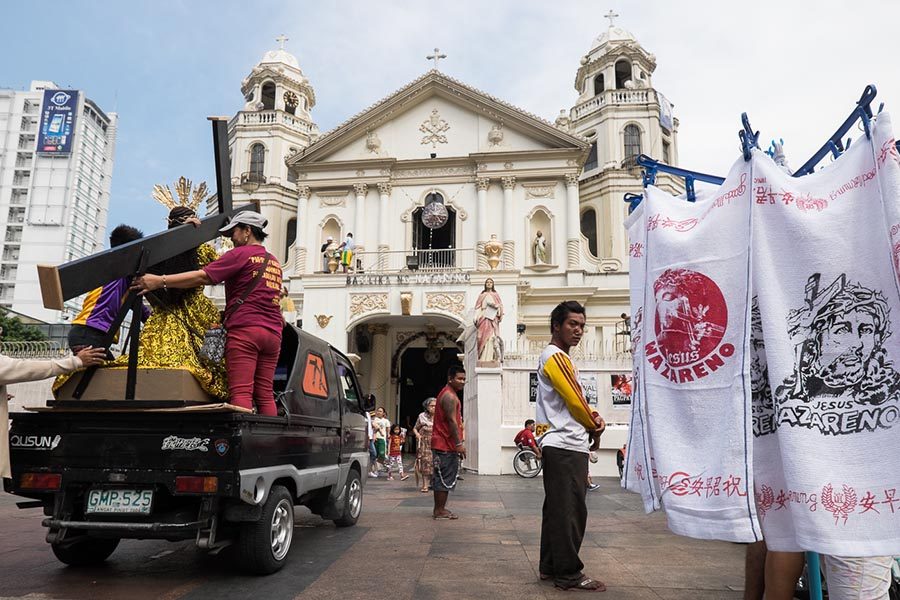
MANILA, Philippines – The image of the Black Nazarene is believed to have performed miraculous acts of healing. But the 410-year-old image is not only known to be the spring of renewed life, but also the source of livelihood for many.
Every January, the already buzzing Quiapo, home of the Black Nazarene and religious paraphernalia, along with cheap cameras, jewelry, and other goods, comes alive as the annual Traslación (the solemn transfer to the Minor Basilica from its original location in what is now Rizal Park) approaches. This year, Traslación, held every the 9th of the month, falls on a Saturday.
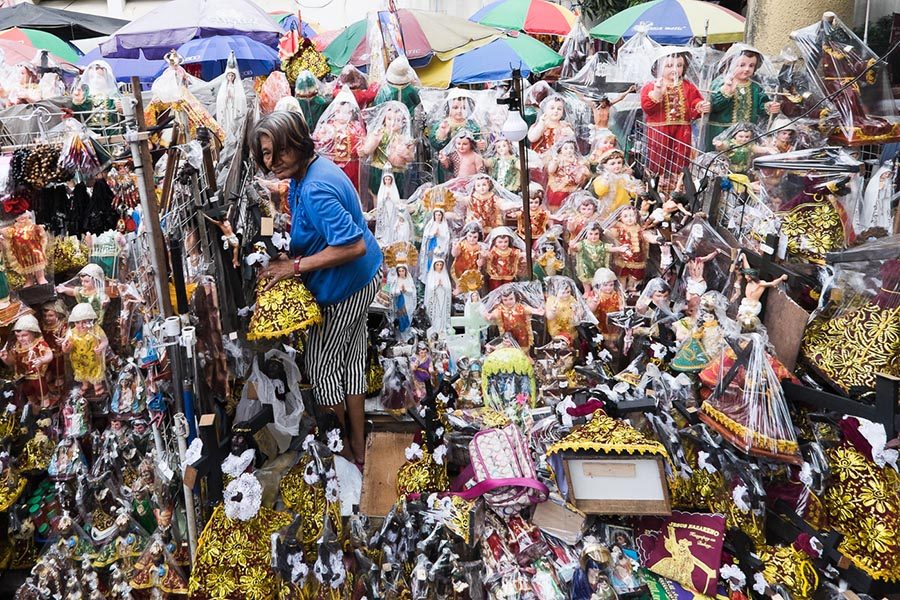
Money-making opportunities
“Iglesia ako, pero ‘yan ang hanap-buhay ko (I’m a member of the Iglesia ni Cristo, but this is how I earn a living), said Alfred*, who sells bags in front of Quiapo Church on regular days. Every January, he sells towels of the Black Nazarene as well.
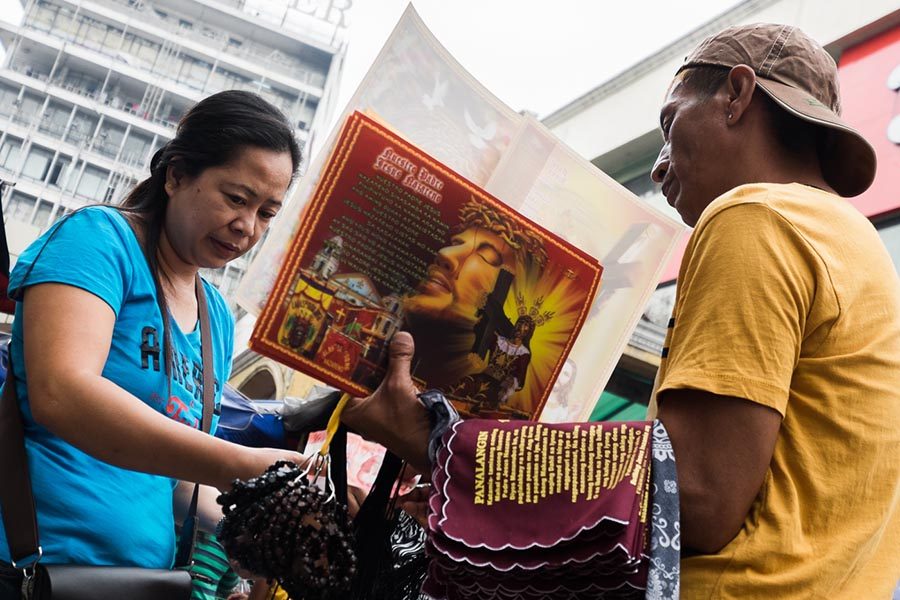
During the feast, his regular P1,500 ($31.78) profit increases to P3,500 ($74.15). He has been doing this for more than 20 years now. Despite his humble earnings, the towels that cost P20 ($0.42) apiece have sent 5 of his children to school.
According to Alfred, the increase in the number of devotees over the years have spiked up his sales, especially during the papal visit in January last year when he sold Pope Francis souvenirs as well. (READ: The business of devotion)
Sally, whose stall is filled with Nazareno costumes, statues, shirts, bottles of oils, and towels also earned thrice as much during the papal visit. She would normally take home P10,000 ($211.84) after the Feast of the Black Nazarene, but when Pope Francis visited, she profited over P30,000 ($635.53) from selling memorabilia of both events.
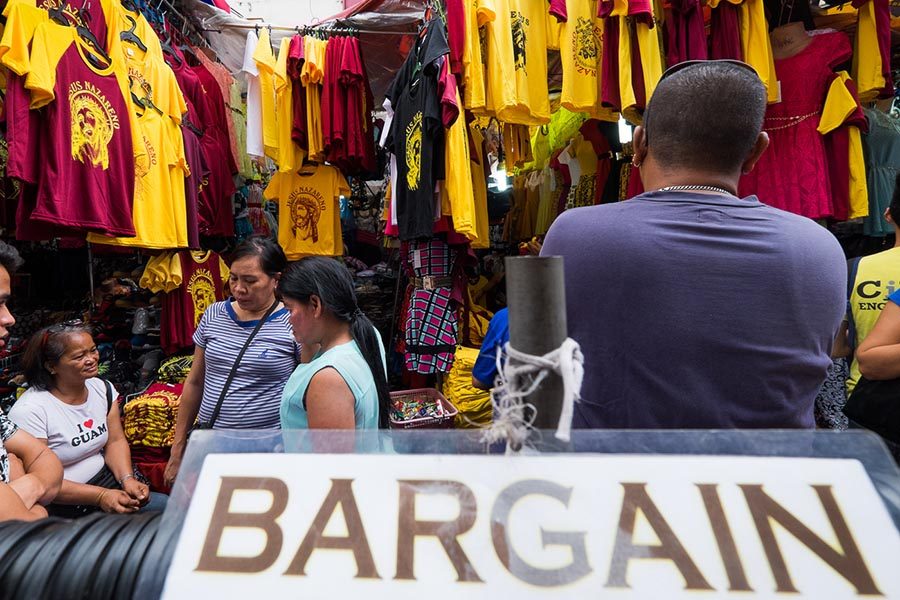
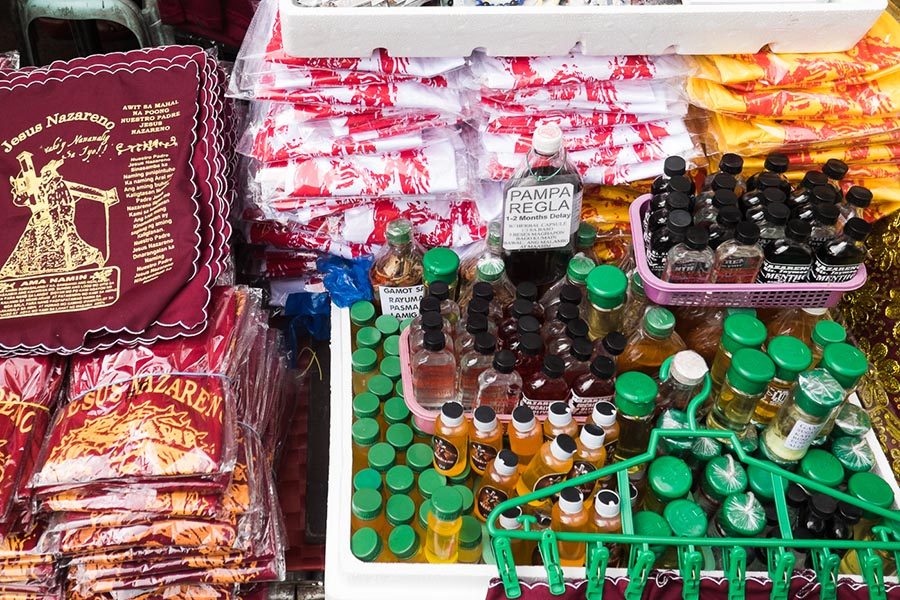
Similarly, large-scale businesses in the area are affected as well. The 24/7 convenience store beside Quiapo Church restocks its branch days before, in anticipation of the large number of people on the day of the procession.
A nearby Chinese restaurant that normally operates for 12 hours a day makes an exception during Traslación, and is open for 24 hours due to the expected surge of customers.
On the other side of Quiapo is an inconspicuous stall that sells Nazareno shirts for adults and babies, along with other religious items. It has been in the business for more than a decade.
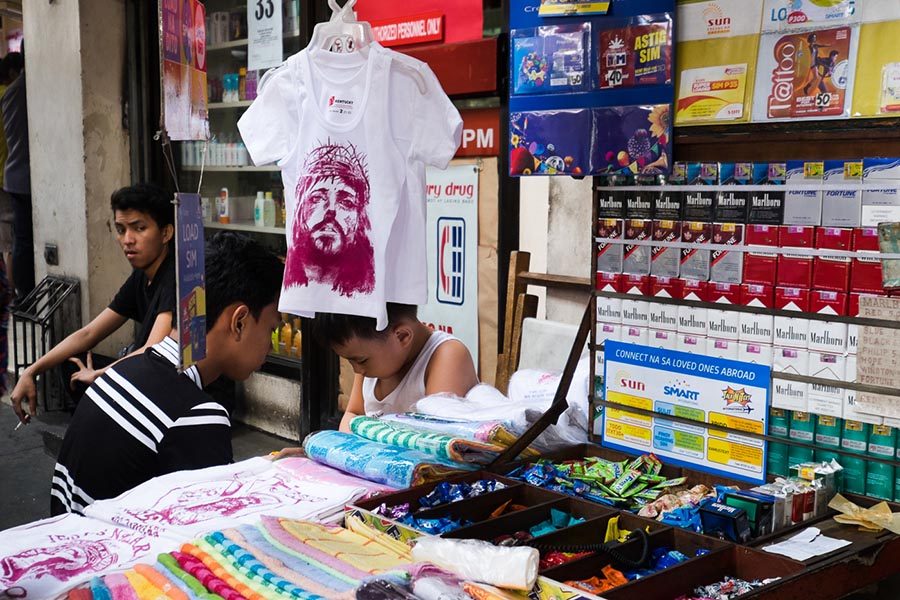
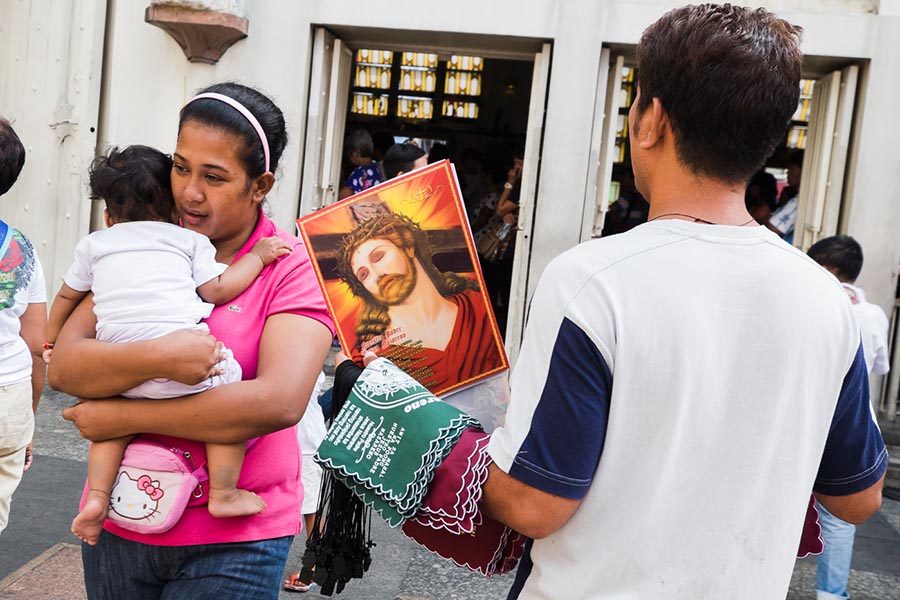
The stall got its highest earnings amounting to P80,000 ($1,695.41) 4 years ago when its silkscreened designs became popular. Its adult t-shirts cost P270 ($5.72) on regular days but prices are inflated to up to P350 ($7.42) a day before the procession.
“’Pag piyesta talaga, nananamantala (During the feast, [a lot of people] take advantage),” said a passer-by.
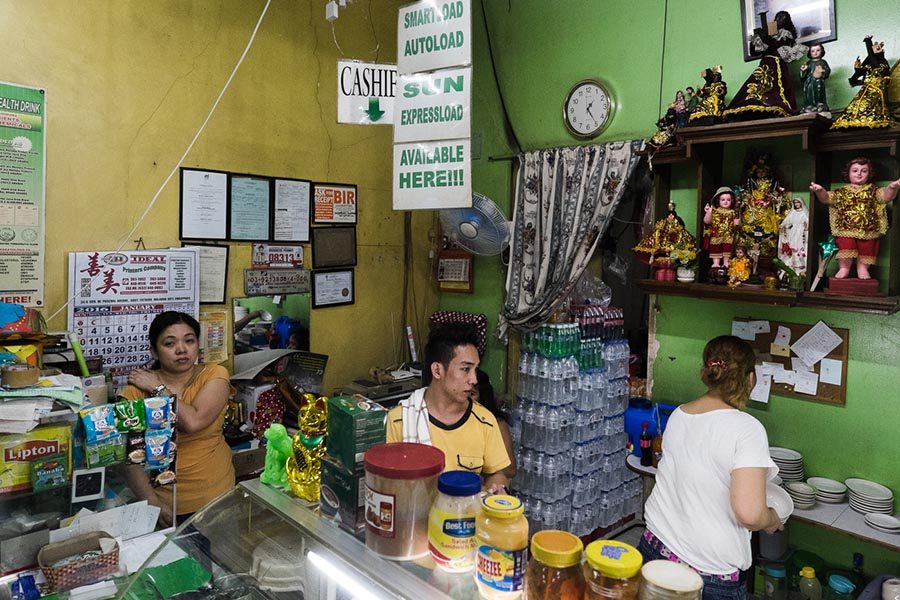
Piety and profit
But not everyone sees the Black Nazarene as merely a business venture. Others run their stores as an extension of their devotion.
Nazareno’s Fastfood is tucked in one of the alleys that are crowded with religious statues. It is owned by a family of devotees from Tacloban, who had little to live on when they moved to Manila.
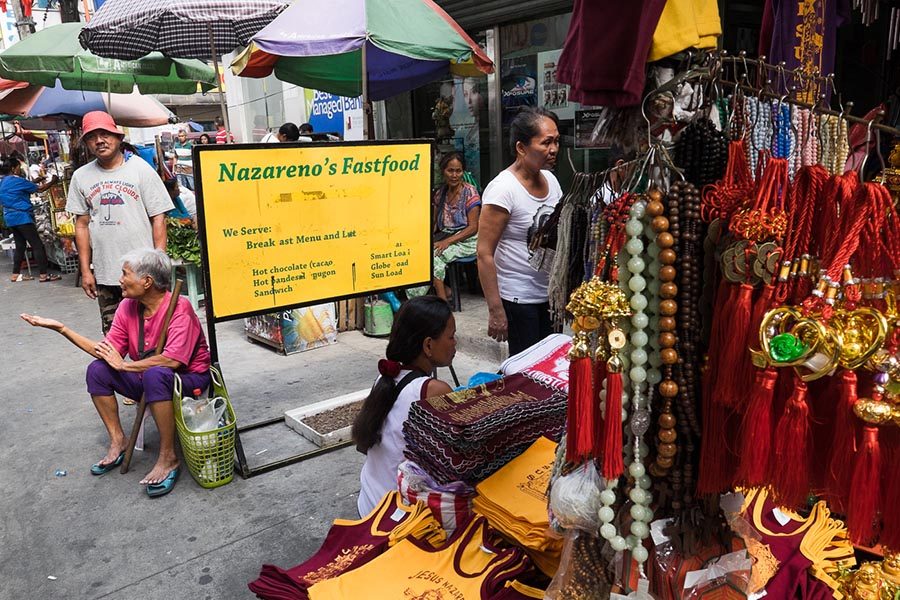
The canteen has been open for 9 years and continues to thrive as a booming business, more so during the feast since marshals and devotees choose to eat there. The owners believe that the name “Nazareno’s Fastfood” is more than a marketing strategy; naming their business after the Black Nazarene was a way of showing reverence, and when combined with prayers, this became instrumental to their success.
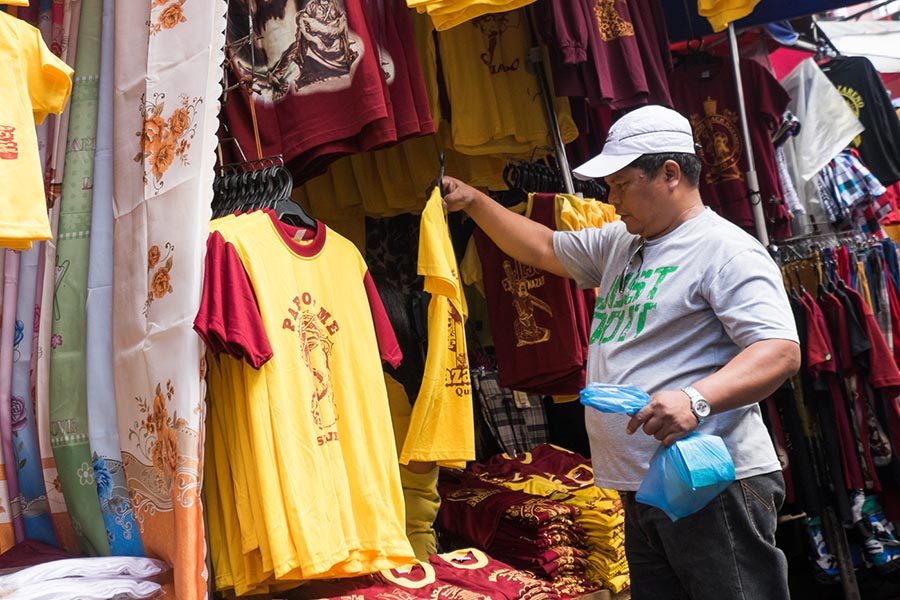
Similarly, Jonabel, whose family started to revere the Black Nazarene after all of their illnesses were healed, has been selling Nazareno items for more than 20 years. Their shirts range from P100-P250 ($2.12-$5.30), which is relatively cheaper compared to other stalls. They believe that their business prospered because of their faith. They started small, selling just statues, until they had enough capital to expand and eventually sell a myriad of Nazareno-related items.
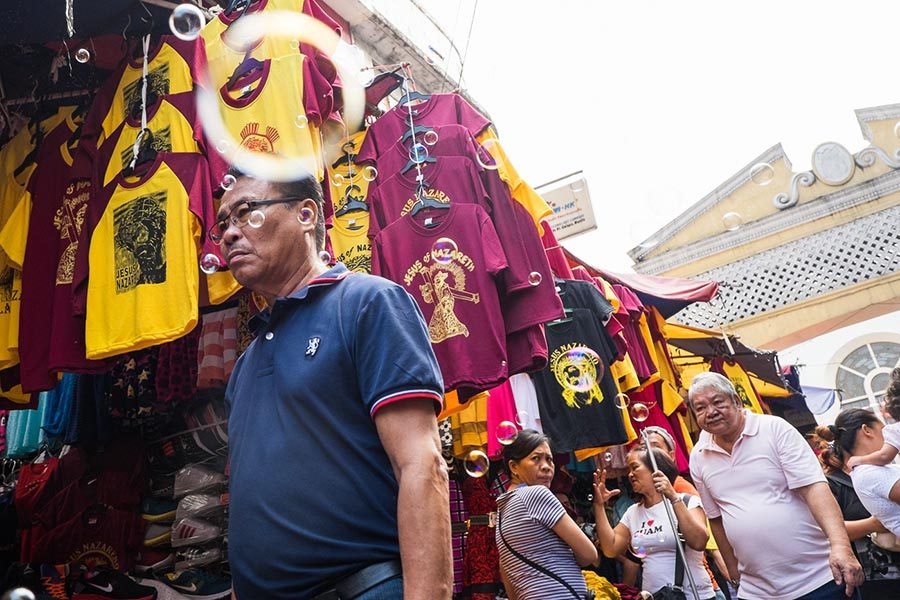
Display of faith
While the image of the Black Nazarene is a source of livelihood for many, to the believers who patronize the products, a shirt or a statue is more than a souvenir.
Near one of the stalls in Quiapo stood a 59-year-old woman who was already wearing a yellow Nazareno shirt and a cross while buying another Nazareno shirt and a replica.
“Mas maganda kapag suot mo ang blessing (It is better when you wear the blessing),” said Arnida Cruz, who shared that because of her devotion, her son was immediately granted a Canadian visa. She has been a devotee since she was a child, and already has 7 Nazareno figures at home of different sizes, a collection she likens to that of a chapel’s.
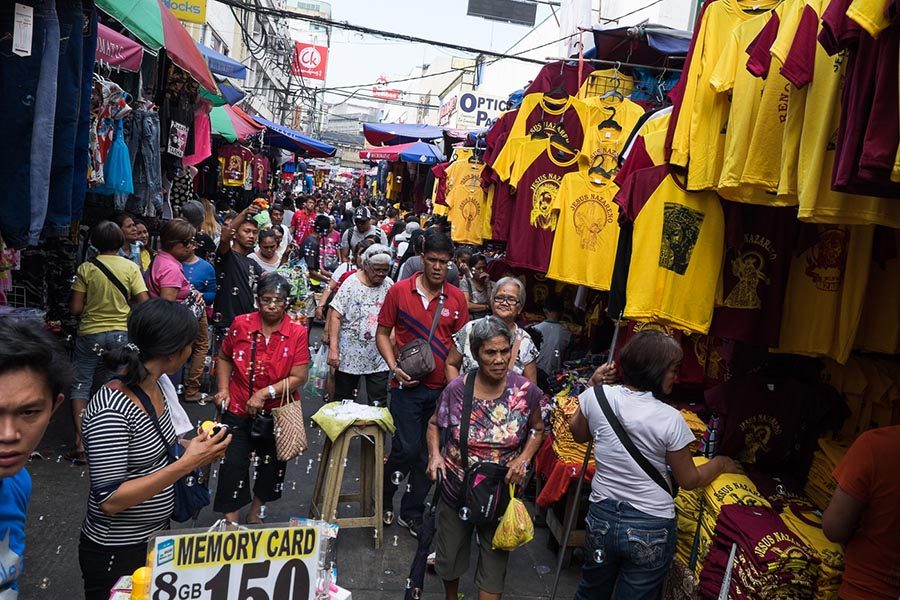
Law of supply and demand
The image of the Black Nazarene, although duplicated a million times over the years, has not lost its significance, as it holds various meanings and uses to sellers, buyers, devotees.
And the Roman Catholic Church has no objection to the use of religious figures to earn money as long as the seller has “the right intention,” or donates part of the profit to the underprivileged, said Bishop Gerardo Alminaza of the Diocese of San Carlos.
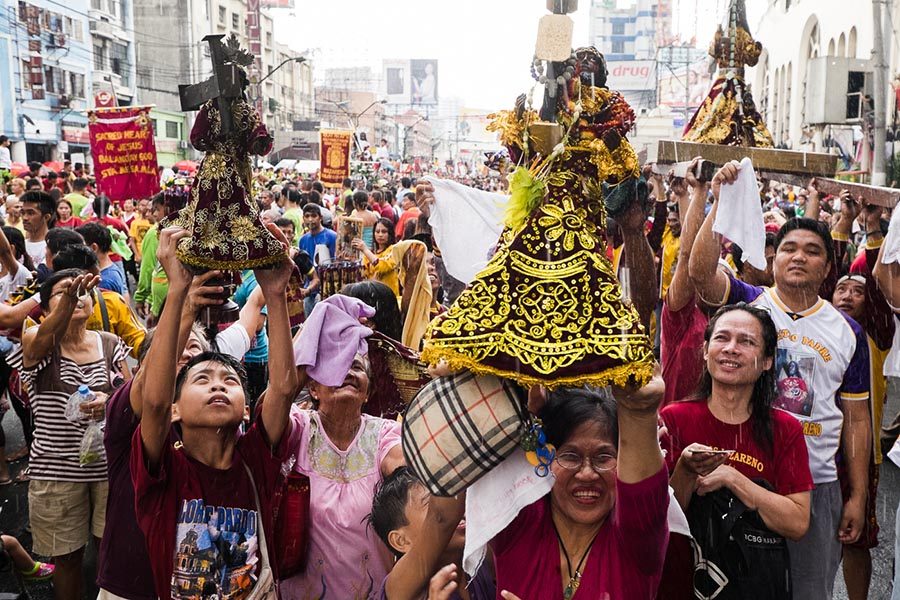
Alminaza said puchasing religious souvenirs is also a way of showing one’s convictions.
“Nagbebenta ka, [because] people naman would want to have a memento, a souvenir, to declare publicly their faith. Kapag kailangan niya magsuot ng T-shirt [with a religious image] or something, nothing wrong,” Alminaza said.
(You sell because people would want to have a memento, a souvenir, to declare publicly their faith. When they need to wear a t-shirt [with a religious image] or something, nothing wrong.)
As for those who increase prices at the last minute, Alminaza said, “[That’s] law of supply and demand, nothing to do with our gospel values, so it’s really taking advantage [of the situation].”
And that is when immorality snakes in, the bishop pointed out.
“They’re really using personalities like the Pope or the Nazareno just for the sake of profit alone, especially if those who benefit do not help others in need,” Alminaza said. – Rappler.com
*Majority of those interviewed in this story requested that their surnames be withheld
Add a comment
How does this make you feel?
There are no comments yet. Add your comment to start the conversation.